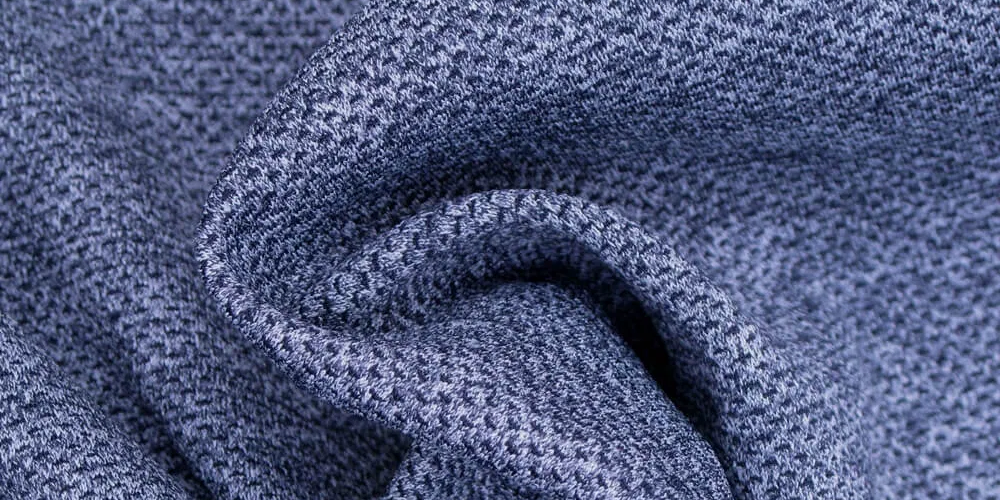
How to Take Care Of Your Knitted Fabrics?
Your hand knitted fabrics are probably a result of hours of hard work and strenuous duty. It is only sad that with time, these fabrics do tend to get dirty and require a thorough washing. Now the worst part is that they are delicate and washing them might seem like a stressful thing to do. Especially because they are a testament to your skill and talent, this feeling is magnified.
Sometimes, the whole idea of taking proper care of your knitted garments might put you off the entire art of knitting. Due to their delicate nature, you might think that washing hand knitted products might cause them unnecessary damage and be unfit for usage.
Do not worry, caring for your knitted products is actually much easier than you must have thought. Also, caring for your knitted fabrics can no longer be an excuse for you to procrastinate on that project.
Why knitted fabrics require proper care
The fabrics used in knitted garments are delicately knitted together. They are malleable and soft. This might cause the fabrics to lose shape over time, especially when it is being incorrectly washed, stored or dried. The product may also shrink in size or experience other issues. It is pertinent to follow the correct methods of care to ensure that your hard work is well maintained long lasted.
Here is a list of care instructions classified by the type of fabric.
Wool
Wool is one of the most luxurious products in the world of yarn. Wool has an ultra-soft texture and is massively comfortable. It is also one of the most popular fabrics in the world. Essentially, it is a fibre obtained from sheep or lambs. It is further classified into varieties based on the animal.
It is also one of those fabrics that does not require frequent washing. It is one of the most ideal fabrics for those lazy knitters.

To take care of wool or cashmere, we recommend taking help of your nearby launderer. They are usually experts at handling delicate fabrics and this will help in extending the longevity of your fabric.
Don’t be baffled by this advise because you can also take care of wool at home. The best method to wash wool is to use your hands. Use lukewarm water and gently handwash your wool artifacts with an ultra-mild detergent. You can then rinse off the detergent in cold water with a few tablespoons of vinegar dissolved. Vinegar will ensure that all the residue is washed away. Remember to not twist or wring your fabric. While drying, make sure to lay flat instead of hanging to retain shape.
Acrylic/Nylon/Polyester
These fabrics are a knitter’s best friend. You can knit almost anything with acrylic or nylon. Everything from socks, gloves, hats, blankets, sweaters and even pyjamas can be knitted using acrylic, nylon or polyester yarns. You can find these yarns separately or usually in blends of one another.
However they may be, these fibres are quick drying and resistant to any form of odour, mildew, infestation, deterioration or any chemicals. The fibers also retain their shape well and are not as malleable as wool. This makes them a delight to take care of.

To take care of acrylic, nylon or polyester fabrics, we recommend using your regular laundry detergent and wash in a regular machine cycle or by hand. You can use cold or hot water. Since your fabrics are going to be ‘hand-knitted’ by you, it is better to keep gentle in the washing process. Do not scrub too hard or wring your fabrics. Make sure to use a pressing cloth before ironing your fabrics.
Like wools and other delicate fabrics, silk too requires additional care. Remember that silk shrinks. Make sure to read the labels of your yarn thoroughly to make sure if the fibre has been pre-shrunk or not.
When it comes to taking care of silk, only hand wash your garments. Gently handwash silk in lukewarm water and use a detergent that is certified ‘non-alkaline’. Make sure to use a mild detergent and do not scrub too hard. Like wool, you can also water with a couple of tablespoons of vinegar to help in rinsing off excess soap. Do not wring or twist your silk fabric. Lay flat to dry. Hanging may manipulate the shape of your fabric.
Cotton fabrics can be thrown into the washer with ease. It is durable as durable can be. But keep in mind to read the labels thoroughly before you wash cotton. If you think that your hand knitted cotton fabric is too delicate, gently handwash your garment. Rest, cotton is pretty easy to handle. You can hang or lay flat to dry.
For blended fabrics, it is best to follow proper care. In the world of fabrics, there is nothing a bit of care can’t help resolve.

Expert tip: Wash your fabrics inside out to reduce any pilling and damage.
Storage
Storing your knitted products also affects their lifespan and quality. Some fabrics fare well when stored a certain way than others. It is important to make sure that you are storing your fabrics right. Cottons and wools are best folded neatly while storing. For silks, it is better to hand them upright on a hanger. Acrylic and everything else can be stored hung or folded.
Always remember to wash your fabrics only when needed. Frequent washing with the utmost care also damages your fabrics to a slight extent. We hope that this guide can help you take care of your fabrics properly. For more such information, visit https://vardhmanknitworld.com/.

